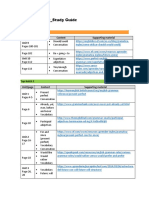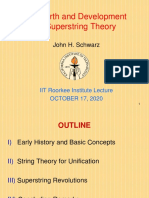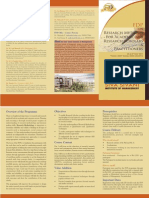0 ratings0% found this document useful (0 votes)
2 views19 Portmeirion
19 Portmeirion
Uploaded by
Saw Nyein ChanCopyright:
© All Rights Reserved
Available Formats
Download as PDF, TXT or read online from Scribd
19 Portmeirion
19 Portmeirion
Uploaded by
Saw Nyein Chan0 ratings0% found this document useful (0 votes)
2 views1 pageOriginal Title
19-portmeirion
Copyright
© © All Rights Reserved
Available Formats
PDF, TXT or read online from Scribd
Share this document
Did you find this document useful?
Is this content inappropriate?
Copyright:
© All Rights Reserved
Available Formats
Download as PDF, TXT or read online from Scribd
Download as pdf or txt
0 ratings0% found this document useful (0 votes)
2 views1 page19 Portmeirion
19 Portmeirion
Uploaded by
Saw Nyein ChanCopyright:
© All Rights Reserved
Available Formats
Download as PDF, TXT or read online from Scribd
Download as pdf or txt
You are on page 1of 1
Activity 1
Before you read, match the word or phrase to a definition.
1. eccentric 2. campaigned 3. in ruins
4. rescued 5. mild 6. setting
a. destroyed; badly damaged
b. fought; worked for a political goal
c. gentle; moderate
d. location; site
e. saved; moved out of danger
f. slightly strange; different
Portmeirion – a hidden
tourist treasure
Portmeirion
© VisitBritain / Britain on View
By Julie Mason
Hidden treasure Activity 3
When you take a trip to Britain, what do you visit? You probably start in London
and then go on a day trip to Oxford or Stratford-upon-Avon. If you’ve got time, Read the text and decide if the following sentences are true or false. Can you
you might go up to Scotland, but not many foreign tourists have been to the little correct the false ones?
village of Portmeirion in north-west Wales.
1. Portmeirion is a popular tourist destination with foreign visitors.
Portmeirion 2. It is in north-west England.
Portmeirion was built in the style of an Italian village by the eccentric architect 3. There are cafés and restaurants in the village.
Clough Williams-Ellis. It has a beautiful position on a hill overlooking the coast. 4. Clough Williams-Ellis studied architecture at Cambridge.
Visitors can stay in one of the apartments in the village or just visit for the day to 5. He also worked to protect the countryside of North Wales.
see the wonderful architecture, have a snack or a meal, visit the shops and walk 6. In 1925, Portmeirion was in perfect condition.
around the beautiful gardens. 7. Williams-Ellis saved old buildings and rebuilt them in Portmeirion.
The architect 8. The weather in Portmeirion is very cold in winter.
Clough Williams-Ellis was born in England in 1883. He studied natural sciences 9. There are dogs buried in the gardens.
at Cambridge University but gave up and went to work for an architect instead. 10. One of the Beatles visited Portmeirion.
He worked as an architect for most of his life, but he also campaigned hard to
protect the environment, particularly in North Wales. He died in April 1978 at the
age of 94.
A brief history Activity 4
Clough bought the site for the village in 1925. It was relatively cheap because
the buildings which were there at the time were in ruins. His goal was to show In the text we are told that Portmeirion has a dogs’ cemetery. Do you
that you could develop a site without losing its natural beauty. Many old statues remember when we use an apostrophe in English? Do this exercise to see if
and buildings were rescued and brought to North Wales, so Clough described you can put one apostrophe in the correct place in each sentence:
Portmeirion as ‘a home for fallen buildings’. He worked on and off on the project
1. Cloughs goal was to build a village without damaging the environment.
until 1975.
2. Before becoming an architect, hed studied at Cambridge University.
The gardens 3. Visitors apartments can be rented in the village.
The village is surrounded by woodlands. Because of its protected position 4. Not many tourists have heard of Portmeirion, but its a great place to
between two rivers, the climate of Portmeirion is very mild and subtropical plants visit.
can grow there. As well as the exotic plants, a walk through the gardens takes you 5. Stratford-upon-Avon is famous as Shakespeares birthplace.
past lakes, pagodas, statues and even a dogs’ cemetery. 6. If you visit Portmeirion, you mustnt miss the beautiful gardens.
Famous visitors 7. Most tourists plans include a visit to London, Oxford and Stratford.
Although not well known outside Wales, Portmeirion has had a series of famous 8. After reading this text, Id like to visit Portmeirion.
visitors, including the American actor Gregory Peck and Paul McCartney of the
Beatles. But Portmeirion is perhaps best known as being the setting for a 1960s
spy drama called ‘The Prisoner’. Fans of the show still visit the village, which holds
annual ‘Prisoner’ events and even has a ‘Prisoner’ souvenir shop. Activity 5
With so many attractions, how long will this little treasure continue to be ‘hidden’?
Would you like to visit Portmeirion?
Do you have any ‘hidden’ treasures in your home country – tourist sites that
Activity 2 are not very well known? What is special about them? Can you explain why
they are not more famous?
Now complete the sentences using words and phrases from the text.
If you worked for a tourist organisation, how would you advertise your hidden
1. I thought the weather would be really cold in London at Christmas, but treasure?
in fact it was very (..........).
2. The firemen (..........) ten people from the burning building.
3. The (..........) for the Shakespeare play ’Romeo and Juliet’ is in northern
Italy.
4. My friend likes to eat chips with honey, but I think that’s a bit (..........).
5. Barack Obama (..........) hard to win the American elections.
9. T - There’s a dogs’ cemetery; 10. T - Paul McCartney visited Portmeirion
7. T - They were rescued and brought to North Wales; 8. F - It’s mild;
6. After the terrible storm, the little village was left (..........). 5. T - He campaigned to protect the environment; 6. F - Portmeirion was in ruins;
3. True (T) - You can have a snack or a meal; 4. F - He studied natural sciences;
1. False (F) - Not many people have heard of Portmeirion; 2. F - It’s in north-west Wales;
8. After reading this text, I’d like to visit Portmeirion. Activity 3
7. Most tourists’ plans include a visit to London, Oxford and Stratford. 1. mild; 2. rescued; 3. setting; 4. eccentric; 5. campaigned; 6. in ruins
6. If you visit Portmeirion, you mustn’t miss the beautiful gardens.
5. Stratford-upon-Avon is famous as Shakespeare’s birthplace. Activity 2
4. Not many tourists have heard of Portmeirion, but it’s a great place to visit. 1. f; 2. b; 3. a; 4. e; 5. c; 6. d
3. Visitors’ apartments can be rented in the village.
2. Before becoming an architect, he’d studied at Cambridge University. Activity 1
1. Clough’s goal was to build a village without damaging the environment.
Activity 4
Answers
To find more English language activities visit:
www.britishcouncil.org/learnenglish © British Council 2014
You might also like
- Ireland AnswerDocument2 pagesIreland AnswerLeon Gris50% (2)
- So 2nd Ed Adv Read Extra U3Document2 pagesSo 2nd Ed Adv Read Extra U3hector1817No ratings yet
- Imagining LandscapesDocument184 pagesImagining LandscapesTsvetana Boncheva100% (2)
- Chapter 27 - Case StudiesDocument9 pagesChapter 27 - Case StudiesAnkit Gandhi0% (2)
- Student Book Answers Ch1 4Document28 pagesStudent Book Answers Ch1 4haleemafaizann2008No ratings yet
- Reading Part 3 - Juan Miguel AngelesDocument2 pagesReading Part 3 - Juan Miguel AngelesJuan Miguel Angeles EsparzaNo ratings yet
- Land of History, Land of Legends: Warmer: A Quick QuizDocument6 pagesLand of History, Land of Legends: Warmer: A Quick QuizAndreea DragomirNo ratings yet
- دروس مادة اللغة الانجليزية للفصل الثالث سنة رابعة متوسطDocument98 pagesدروس مادة اللغة الانجليزية للفصل الثالث سنة رابعة متوسطAbderr abdouNo ratings yet
- Mauritius - Grade 9Document3 pagesMauritius - Grade 9Femina KalaimathiNo ratings yet
- Lit IngDocument3 pagesLit IngMelva Yola AfdarezaNo ratings yet
- English 10Document192 pagesEnglish 10Gevorg GinosyanNo ratings yet
- Art Appreciation CountriesDocument12 pagesArt Appreciation Countriessinscity700No ratings yet
- Workbook Unit 3 2 PDFDocument5 pagesWorkbook Unit 3 2 PDFMariya LyubenovaNo ratings yet
- TEST 1 ReadingDocument21 pagesTEST 1 Readingirma gochaleishviliNo ratings yet
- English TestDocument12 pagesEnglish TestTornike KukhaNo ratings yet
- Practice Test 3 For Grade 9Document4 pagesPractice Test 3 For Grade 9likeabulldozerNo ratings yet
- English. PracticeDocument7 pagesEnglish. PracticeАнастасия ПогадаеваNo ratings yet
- 5 Unique Things To Do in IrelandDocument7 pages5 Unique Things To Do in IrelandAndrei VasileNo ratings yet
- The Plan of The Seance: File 9 Relative PronounsDocument10 pagesThe Plan of The Seance: File 9 Relative PronounsMedway BenNo ratings yet
- Handout Semester 2 - 2Document9 pagesHandout Semester 2 - 2Maria Novia ArdineNo ratings yet
- Key Links C1-C2 Test 5Document6 pagesKey Links C1-C2 Test 5χριστινα παπ100% (1)
- Passages 2Document14 pagesPassages 2Mariano el ChidoNo ratings yet
- Chapple, R. M. 2014 European Heritage Open Days 2013 - An East Belfast Experience - Part I. Blogspot PostDocument14 pagesChapple, R. M. 2014 European Heritage Open Days 2013 - An East Belfast Experience - Part I. Blogspot PostRobert M ChappleNo ratings yet
- Things To Do In: BrightonDocument2 pagesThings To Do In: BrightonJean Pierre Garay SotoNo ratings yet
- NM3 Stest2A2Document4 pagesNM3 Stest2A2Ewa ŚwięchNo ratings yet
- 19 - Great Britain PDFDocument2 pages19 - Great Britain PDFPavel MalýNo ratings yet
- GAISBER, Fred - The Fred Gaisberg Diaries. Part 2. Going East (1902-1903)Document57 pagesGAISBER, Fred - The Fred Gaisberg Diaries. Part 2. Going East (1902-1903)gonzaleitonNo ratings yet
- TH THDocument2 pagesTH THHana Marie CigánkováNo ratings yet
- Sample Test-For SsDocument4 pagesSample Test-For SsTu NguyenNo ratings yet
- Visiting Ireland British English TeacherDocument15 pagesVisiting Ireland British English TeacherHạnh Thái Thị HồngNo ratings yet
- LSituation 1Document17 pagesLSituation 1Montse RodmurNo ratings yet
- Celex Basic 3 Countries: Jimenez Lopez Karen AndreaDocument6 pagesCelex Basic 3 Countries: Jimenez Lopez Karen Andreakaren jimenezNo ratings yet
- Lección de Inglés B1Document50 pagesLección de Inglés B1Miguel Angel ORDOÑEZ ANULANo ratings yet
- Soal Bahasa Inggris Semester GanjilDocument7 pagesSoal Bahasa Inggris Semester Ganjilokta anita pouwNo ratings yet
- Practicereadingtests ComprehensionDocument16 pagesPracticereadingtests Comprehensionapi-369396594No ratings yet
- A. Word You Know: Places To GoDocument2 pagesA. Word You Know: Places To GoMax Percy Carhuamaca Rojas100% (1)
- The Woodworker & Good Woodworking 2019-09Document100 pagesThe Woodworker & Good Woodworking 2019-09moza4koNo ratings yet
- Irlanda: 3 Important City and WhyDocument2 pagesIrlanda: 3 Important City and WhyLidia Riffo TorresNo ratings yet
- Live Beat 2 TB - Unit 6Document10 pagesLive Beat 2 TB - Unit 6Jogi NeroNo ratings yet
- 3 BT SignedDocument4 pages3 BT SignedFrancisco HPNo ratings yet
- Link L8 U6 Unit TestaDocument2 pagesLink L8 U6 Unit Testaklipinski274No ratings yet
- Day-16 General ReadingDocument13 pagesDay-16 General ReadingPatel Monita VasubhaiNo ratings yet
- Listening 8 GradeDocument1 pageListening 8 GradelitomNo ratings yet
- Key LS UL2 U1Document4 pagesKey LS UL2 U1Quang Nguyễn TrọngNo ratings yet
- Camp Morton CampgroundsDocument2 pagesCamp Morton CampgroundsMd Rabiul Islam KhanNo ratings yet
- Unit3 WorkbookDocument7 pagesUnit3 WorkbookKarime RosasNo ratings yet
- Ingles Intermedio IIDocument7 pagesIngles Intermedio IIAby RosalesNo ratings yet
- PET Test1 Read1-5Document8 pagesPET Test1 Read1-5Byron PachacamaNo ratings yet
- RL3BY WB Checkpoint Loesungen U1Document8 pagesRL3BY WB Checkpoint Loesungen U1romeroflaviax01No ratings yet
- AR Irish LaceDocument9 pagesAR Irish Laceweb.angeletNo ratings yet
- Destination Ireland: Dublin FactsDocument3 pagesDestination Ireland: Dublin Factsolivia magrinaNo ratings yet
- NM3 Stest2A1Document4 pagesNM3 Stest2A1Ewa ŚwięchNo ratings yet
- ENG 5 Final VersionDocument16 pagesENG 5 Final VersionUsamaAbunniajNo ratings yet
- ReadingDocument14 pagesReadingzorianaNo ratings yet
- Things To Do In: BrightonDocument4 pagesThings To Do In: BrightonCamila Ruiz GasparNo ratings yet
- Learning Activity 1 Evidence: My Holiday Trip: and Predictions. Then Answer The Questions About Your PlansDocument3 pagesLearning Activity 1 Evidence: My Holiday Trip: and Predictions. Then Answer The Questions About Your PlansDaniela MonpotesNo ratings yet
- 5 Supply Chain Technologies That Deliver Competitive Advantage MIT SloanDocument1 page5 Supply Chain Technologies That Deliver Competitive Advantage MIT SloanefyaellaNo ratings yet
- XUYFANEP40002 DocumentDocument4 pagesXUYFANEP40002 DocumentXavier LopezNo ratings yet
- ISPDDocument17 pagesISPDNorlando RuizNo ratings yet
- FLR2398HA101 Certificate in Terrorism Studies ProspectusDocument12 pagesFLR2398HA101 Certificate in Terrorism Studies ProspectusseethalekshmimNo ratings yet
- Functional Level Strategy Hill and JonesDocument34 pagesFunctional Level Strategy Hill and JonesAmi KallalNo ratings yet
- SixtDocument7 pagesSixtAmit BaharaNo ratings yet
- Business Process ReengineeringDocument3 pagesBusiness Process ReengineeringZainyAwanNo ratings yet
- Enhancing Learning at The Polytechnic University: Interactive Classroom TechniquesDocument12 pagesEnhancing Learning at The Polytechnic University: Interactive Classroom TechniquesRinandar MusliminNo ratings yet
- Solutions: Speed, Distance and TimeDocument25 pagesSolutions: Speed, Distance and TimeSamuel GonzálezNo ratings yet
- IT - 2/grammar - Study Guide: Miss Carola Esquivel Top Notch 1 Unit/page Content Supporting Material Unit 9Document2 pagesIT - 2/grammar - Study Guide: Miss Carola Esquivel Top Notch 1 Unit/page Content Supporting Material Unit 9Ana Priscila VásquezNo ratings yet
- A Collection of Definitions of IntelligenceDocument11 pagesA Collection of Definitions of IntelligenceYuli Triretno100% (1)
- TM-9-2320-272-24P-1 Reo PDFDocument1,488 pagesTM-9-2320-272-24P-1 Reo PDFMarina Abigail CAMARGONo ratings yet
- Water Quality Assessment Using Overall Index of Pollution in Riverbed Mining Area of Ganga River Haridwar IndiaDocument11 pagesWater Quality Assessment Using Overall Index of Pollution in Riverbed Mining Area of Ganga River Haridwar IndiaAlandNo ratings yet
- Annexure 2Document13 pagesAnnexure 2anujbeniwalNo ratings yet
- Level 1, Module 1 Hot Spot Extra ReadingDocument3 pagesLevel 1, Module 1 Hot Spot Extra ReadingMarina VoiculescuNo ratings yet
- Case Study 2Document7 pagesCase Study 2riza beltranNo ratings yet
- Dip Module7Document26 pagesDip Module7Lucia PročkováNo ratings yet
- Real Time Application of Ants Colony Optimization: Dr.S.M.Girirajkumar Dr.K.Ramkumar Sanjay Sarma O.VDocument13 pagesReal Time Application of Ants Colony Optimization: Dr.S.M.Girirajkumar Dr.K.Ramkumar Sanjay Sarma O.VKarthik BalajiNo ratings yet
- The Met Tower BangkokDocument2 pagesThe Met Tower BangkokShreya LohakareNo ratings yet
- Lab 1-NewDocument20 pagesLab 1-NewHajira NusretNo ratings yet
- IIT Kanpur Lecture On Super String TheoryDocument44 pagesIIT Kanpur Lecture On Super String TheoryAubal ShaubalNo ratings yet
- FDP On Research Methods BrochureDocument3 pagesFDP On Research Methods Brochurevsabijith@gmail.comNo ratings yet
- Commodity Intelligence System (Synopsis)Document12 pagesCommodity Intelligence System (Synopsis)sanjaykumarguptaaNo ratings yet
- WellInsight Help Tutorial PDFDocument472 pagesWellInsight Help Tutorial PDFKonul AlizadehNo ratings yet
- Average DSCR Calculation 1 01cDocument20 pagesAverage DSCR Calculation 1 01cLuharuka100% (1)
- FXED DescriptionDocument7 pagesFXED DescriptionNguyễn Hải Duy ĐặngNo ratings yet
- An Overview of Out-Migration From Uttar PradeshDocument9 pagesAn Overview of Out-Migration From Uttar PradeshMAO YELLAREDDYNo ratings yet
- Financial StatementsDocument19 pagesFinancial StatementsHeritage Digital ArtsNo ratings yet

























































































